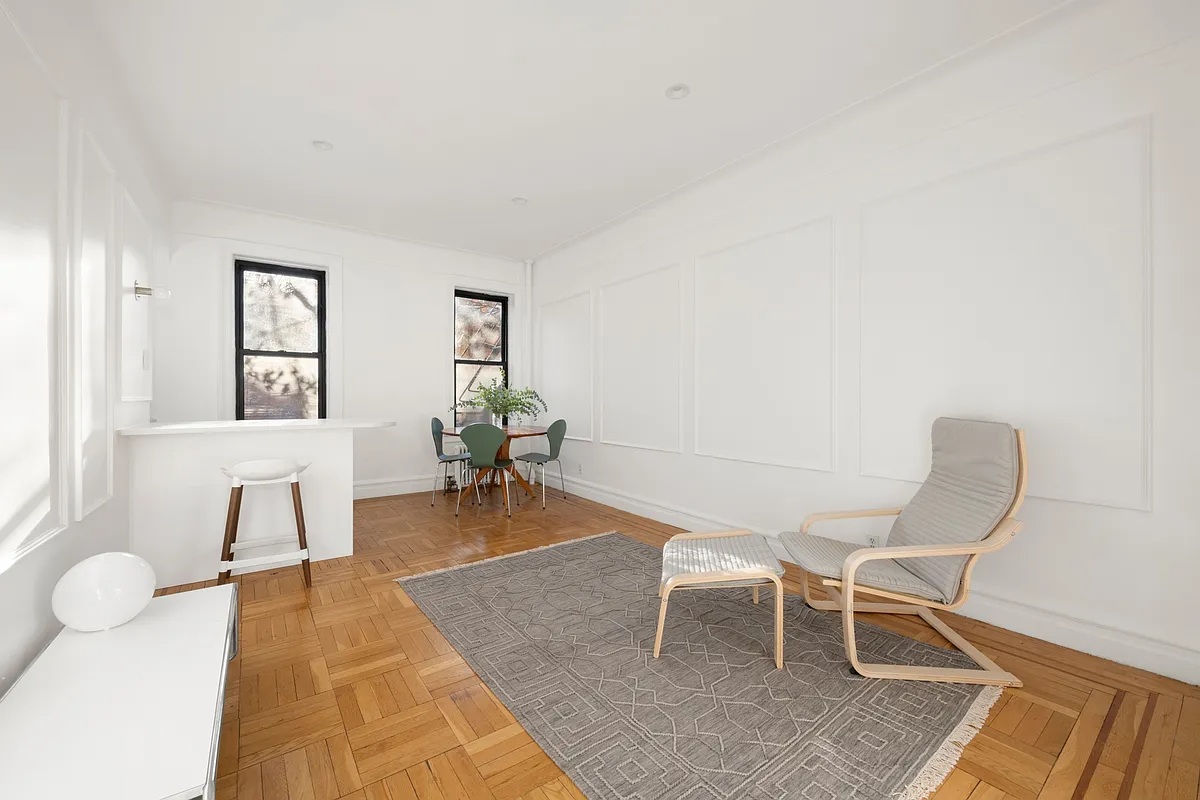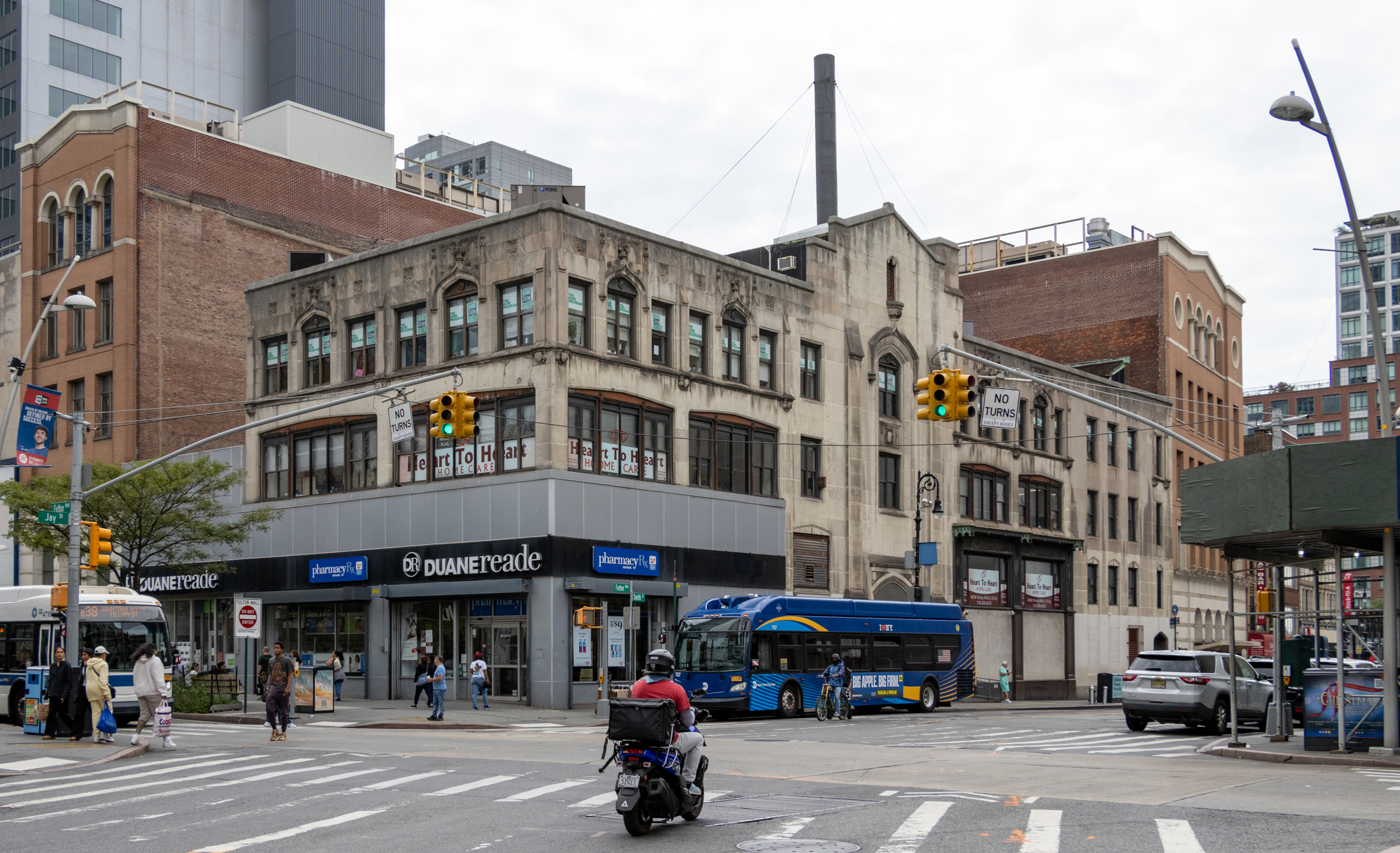Multifamily Commercial Real Estate Sale for $35.3 Million
Four six-story elevator apartment buildings changed hands to the tune of $35.3 million last week, brokered by Rosewood Realty Group. That’s 324 units and four commercial spaces sold for “10.4 times the current rent roll,” reports the New York Real Estate Journal. The buildings are 715 St. Marks Avenue, 649 Empire Boulevard and 621 Lefferts…


Four six-story elevator apartment buildings changed hands to the tune of $35.3 million last week, brokered by Rosewood Realty Group. That’s 324 units and four commercial spaces sold for “10.4 times the current rent roll,” reports the New York Real Estate Journal. The buildings are 715 St. Marks Avenue, 649 Empire Boulevard and 621 Lefferts Avenue, in Crown Heights, and 114 Albemarle Road in Kensington, which the paper called “emerging neighborhoods.” “The seller is a family that owned the buildings for over 50 years,” Jungreis said, adding they were sold to another “very active” Brooklyn family, one that “will benefit from the fact that the former owners have left some delicious low hanging fruit for the new owners who will further enjoy appreciation of those assets.” We talked to Jungreis, who assured us that this won’t be a Stuyvesant Town situation, where longtime rent stabilized tenants worry they’ll lose their spots. “These are regular, normal, longterm holders. They’re two young guys in the family business, they just want to hold.”
Rosewood Realty Completes $35.3m Multifamily Portfolio Sale [NYREJ]
Photos from Property Shark.





Sam – glad you feel that way – Alot of money has been made betting against that exact sentiment over the years. (without bribery, physical threats or intimidation or otherwise acting like a criminal).
But then again I dont generally know about the hardened tenancy of Brooklyn – I generally deal with the soft, push-overs that live in the Bronx.
I have seen so many well-intentioned investors and developers get burned by rc/rr. They usually think: I can handle this, I’m sophisticated, I have good lawyers, and I will deal with people in good faith. HA! This is Brooklyn, there is a whole professional class of renters. for all I know they have yearly conventions where they outdo each other with stories of how they drove their owners crazy.
You have to be a ruthless s.o.b. and a hardened inside operator to have any chance of making it. The rules are Old School: intimidation, threats, rudeness, broken promises, and knowing who to bribe in the agencies, courts, and political campaigns. You are Goldie Locks if you don’t think this is way it works.
Good Services to me = reliable heat and hot water; clean (and attractive) environment, quick and efficient repairs and maintenance and a general consideration for safety (ie. decent security, snow removal lighting, etc…)
Benson – I am not ignoring any costs (including time) – nor am I advocating FOR RS/RC (I do favor a vacancy decontrol however).
All I am saying is that you can make alot of money in RS/RC buildings if you buy right (i.e. low rents) and have the capital to take advantage of the law to get MCI increases.
Yes, problem tenants can make your life miserable, delay things, and cost real $ – but with persistence and good records (and $) you will eventually defeat these obstructions.
And yes the bureaucracy favors the tenant, so it makes everything that much harder.
And yes RC/RS is price controls and results in most of the problems of such (shortages etc…)
But as to the strict point of whether you can make $ owning such property without being a cruel slumlord – sorry but the answer is YES.
You buy the building as a multiple of the RR – so if the rents are low (compared to market) and you have the capital to invest, you can use the laws provisions to make tons of buildingwide (and vacancy) improvements and you will (eventually) collect the investment back in terms of higher rents. And that includes higher rents on “improvements” that you could never collect for from non-R/S tenants – like a new roof, boiler, pointing, etc…..
The other advantage of RS/RC buildings (one which is foolishly being threatened by our assinie politicians) is that unlike market-rate tenants – every year (or 2) the “Government” mandates a rent increase (usually between 2-5%) – while it isnt a mandatory increase, tenants view it as such – which makes cash flow increases much more ‘bankable’ then in a market-rate building.
Look – I am no fan of RS/RC – it is stupid in so many ways – but you can make money at it (without being an a$$hole) and if you don’t believe me – good – just makes for more opportunity out there.
FSRQ;
I have to agree 100% with Sam on this one.
Aren’t you ignoring the higher transaction costs in a RC/RS building, be it in actual hard cash or wasted time?
You talk about the ability of an owner to implement MCI’s. As you may be aware, an owner has to pass this by the RS bureacracy for approval, and they have a rigid formula for the increases allowed. To continue where Sam left off: does this jibe with the America business model, especially in real estate, where there is a cycle, and timing is important? Honestly speaking, do you think those bureaucrats favor the tenant or the owner? If some crank tenant makes a complaint to the R/S bureauacracy, do you think it will slow down the approval of the MCI proposal, possibly causing the owner to miss an upmarket cycle?
When you boil it all down, rent control is nothing more than government price control, and virtually no economist these days argues for the efficacy of this approach. Price controls always creates shortages, distortions in the marketplace and unscrupulous operators – in other words – exactly what the NYC rental market is today.
Fortunately for all of us, rent control is on the wane, as fewer owners want to play this fool’s game, and are wisely converting their units to Co-ops or condos.
How are you guys–sam and fsrq–defining “good services?” If the front door locks, the mailboxes are secure, the halls kept clean and the plumbing works, I’m pretty well set. None of that is all that expensive. I’ll even do my own painting if the landlord pays, cause I’ll do a better job than whoever he or she was going to hire. And I’m all in favor of major capital improvements that are actually needed; less so for the ones done just to jack up the rent.
Sam you are criticizing a number of things at once – NYC housing court determines the consequences (or lack there of) for failing to pay rent – and you are right – it is a joke. That being said – this has nothing to do with Rent Stabilization Laws.
And while I agree that the ‘reward’ for making tenants happy (i.e. providing good services and a nice building) is mitigated by the inability to raise rent, there is most definitely a benefit in keeping tenants happy – happy tenants pay quicker, treat your building better, and attract better (and higher paying) tenants for vacancies.
As for tenants not wanting improvements – so what – as long as you follow the law (albeit often time arbitrary and silly one) you can collect all the Capital Improvements from the existing tenancy whether they want it or not. You do not need tenants approval for buildingwide MCIs.
Look I am no fan of RC/RS – but it also provides certain opportunities – it aint easy – but there is plenty of money to be made in (some) RS/RC housing, while providing tenants a great place to live.
I stick by what I wrote, the unintended consequences of rent control laws is a poisoning of the business relationship between renter and landlord. The Landlord gains nothing by making his tenants happy, and the tenants gain nothing by paying their rent on time, or even at all. Meanwhile the market rate renters that occupy the decontrolled units, who want to live in a decent building, have to deal with the renters who want no improvements if it means any adjustment to their below-market rents. I know it is politically incorrect to criticize the peculiarities of the NYC rent laws, and I am well aware that after sixty years, many have become hopelessly dependent on them. But it is nonetheless true that the standard American business model does not work when dealing with rent regulated tenants. In the absence of business, it becomes war, and who will outlive who.
I have never bought the argument made by sam (and numerous others). I compare this to bonds, the prices of which vary depending on return, liquidity, riskiness and other factors. If rent regulations reduce the rent roll for a building, the sales price should reflect that. Anybody who over-pays has no one to blame but themselves. There is no honor in being the greater fool.